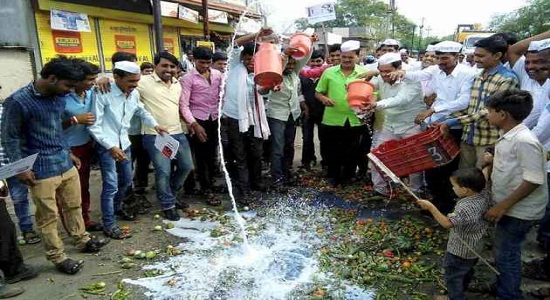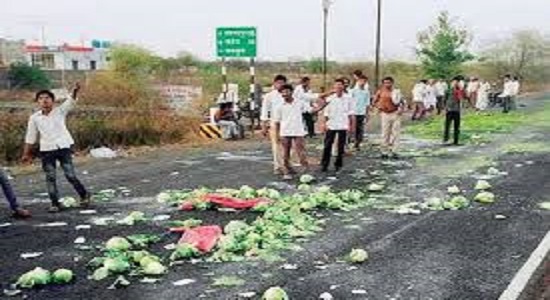The Left-affiliated All India Kisan Sabha (AIKS) today accused the Maharashtra government of having a "negative approach" to the ongoing 10-day farmers' protest and said the stir would intensify from June 5.

There has been no response from the government on the demands of the protesting farmers, AIKS general secretary Ajit Navle told reporters in Mumbai as the agitation entered its second day.
"Farmers across the state are holding protests but the government seems to have a negative approach over keeping the promises it had made to farmers last month," he said.
A meeting of farmers' organisations was convened today and it was decided to intensify the protests from June 5, he said.
"We have given a call to farmers to stop selling their produce meant for cities," Navle said.
He said that tur dal was being imported from Mozambique, sugar from Pakistan while milk and sugarcane were being procured from other states despite Maharashtra having them in abundant quantities.
"Thus, as a mark of protest, we will be gifting all these imported food items, along with milk and sugarcane, to the chief minister through the government's tehsil offices," he said.

The AIKS had led a march of thousands of farmers from Nashik in north Maharashtra to Mumbai earlier this year to press its demands such as complete and unconditional loan waiver and transfer of forest land rights to tribals.
The arrival of vegetables at various market committees and collection of milk in Nashik district were affected today.
"All milk dairies in the district are closed and collection centres for milk have been affected. Agitating farmers poured milk on the roads at Visapur in Yeola taluka in the morning today. Arrival of vegetables at market committees is also low," Raju Desale, working president of the AIKS, said.
An official of the Nashik Agricultural Produce Market Committee said that the arrival of vegetables there was low due to the protest.
Several farmers organisations have jointly called the 10-day protest, which started yesterday, across 22 states in the country demanding remunerative prices for their produce, implementation of the Swaminathan Commission recommendations and farm loan waivers, among others.














